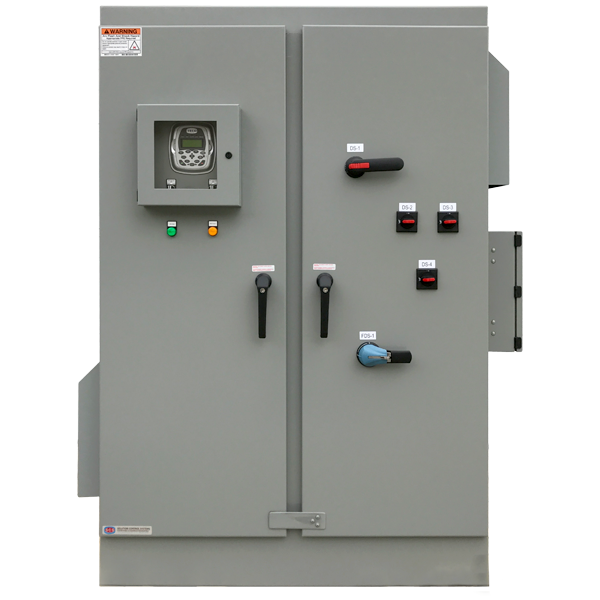Introduction
Modern industrial processes depend on Variable Frequency Drives (VFDs) for improved control and energy efficiency. Solution Control Systems, a leading control system provider, knows that VFD electrical panels must be maintained for optimal performance, dependability, and longevity. This in-depth blog post will discuss VFD electrical panel maintenance, emphasising the importance of routine maintenance and offering tips for optimising these vital components.

Knowledge of VFD Electrical Panels
Before starting maintenance, you must understand VFD electrical panels. Variable frequency drives (VFDs) control electric motor speed and torque by varying frequency and voltage. The electrical panel houses the VFD, contactors, circuit breakers, and cooling systems. This panel must be maintained to protect the VFD and ensure smooth operation.
VFD Electrical Panel Maintenance Importance
Regular VFD electrical panel maintenance has many benefits.
- Improved Reliability: Well-maintained panels are less likely to fail unexpectedly, reducing industrial process downtime.
- Improved Efficiency: Dust and dirt can block heat dissipation, raising operating temperatures and decreasing efficiency. Maintaining optimal operating conditions.
- Durability: VFDs and their electrical components are expensive. Regular maintenance extends service life and maximises ROI.
- Safety Assurance: Well-maintained electrical panels meet safety standards, reducing accidents and electrical hazards.
Also Read: VFD Retrofit Options and Benefits for Units and Plants
Exam and Cleaning Regularly
Effective VFD electrical panel maintenance starts with scheduled inspection and cleaning. Inspection of the electrical panel regularly detects potential issues before they become serious. Inspection focus areas: Check the panel for wear, loose connections, and damage. Check ventilation channels for airflow obstructions. The panel can collect dust and dirt, blocking cooling fans and reducing heat dissipation. Carefully remove debris with compressed air or vacuums.
To tighten loose connections: Electrical connections loosen over time due to vibration and temperature changes. Tighten terminal screws and bus bars for electrical contact.
- Cooling System Check The VFD needs cooling fans and heat sinks to stay cool. Heat sinks and fans should be clean and working.
Environmental and Temperature Considerations
VFD electrical panel temperature and environment are sensitive. Effective management of these factors improves performance and durability:
- Temperature Control: Keep the VFD panel’s ambient temperature within the manufacturer’s range. Avoid installing solar panels in hot climates.
- Adequate Ventilation: Ventilate the panel to drain heat. Not enclose the panel in confined spaces or cabinets without ventilation.
- Humidity Control: Humidity damages electrical components and corrosion. Use humidity control devices to maintain recommended humidity levels.
- Dust and Contaminant Prevention: Dust, moisture, and other contaminants can cause panel short circuits or component failure. Install air filters and seal openings to avoid these issues.
Firmware and software updates
VFD manufacturers regularly update firmware and software to improve performance, add features, and fix security issues. Follow the manufacturer’s instructions to regularly update VFD firmware and software.
Also Read: The Basics of Variable Frequency Drive Panel
Documenting Maintenance
Detailed maintenance records are needed to track VFD electrical panel health and history. Record inspections, cleaning, repairs, and firmware updates. This documentation will help identify recurring issues, track maintenance effectiveness, and aid future troubleshooting.
Conclusion
Industrial process reliability and efficiency depend on VFD electrical panel maintenance. By recognising the significance of routine maintenance and implementing best practises, Solution Control Systems can maximise the performance and longevity of variable frequency drives (VFDs), thereby enhancing customer satisfaction and preserving its reputation as a leading provider of control system solutions. Scheduled inspection and cleaning, temperature and environmental considerations, firmware updates, and meticulous maintenance record-keeping are key pillars in achieving these goals. As industries continue to rely on variable frequency drives (VFDs) for improved control and energy efficiency, electrical panel maintenance becomes more important than ever.
